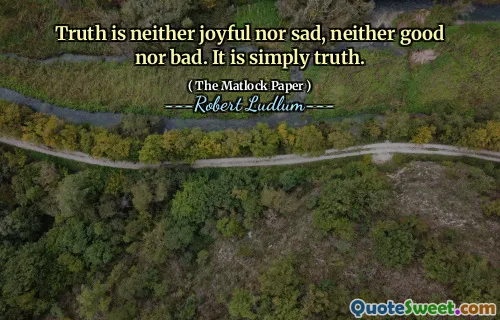
Greatness is not always good.
This quote challenges the conventional perception that greatness inherently equates to goodness. It's a powerful reminder that qualities like power, fame, or extraordinary accomplishments, often celebrated as markers of greatness, do not necessarily guarantee moral or ethical superiority. Greatness can manifest in various forms—some beneficial and inspiring, others destructive and harmful. For example, a brilliant strategist or a powerful leader can achieve greatness in their field but might use their influence destructively or selfishly. This quote encourages critical thinking about the nature of greatness and urges us to look beyond surface-level achievements, assessing the underlying intentions and consequences of one's actions.
In the context of life and literature, this reflection invites us to recognize that strength and skill alone do not define value. It fosters a more nuanced understanding of what it means to be 'great,' emphasizing the importance of wisdom, compassion, and ethical responsibility. Such a perspective is essential for personal growth and societal progress since it champions integrity alongside achievement.
Ultimately, feeling compelled to differentiate these concepts helps us appreciate true greatness that encompasses both excellence and goodness. It's a call to reexamine the qualities we idolize and to strive for a kind of greatness that contributes positively to the world, transcending mere accolades or notoriety. This insight, credited here with the notion of "greatness is not always good," challenges us to foster a balanced view that champions not just achievement but meaningful and moral impact.




